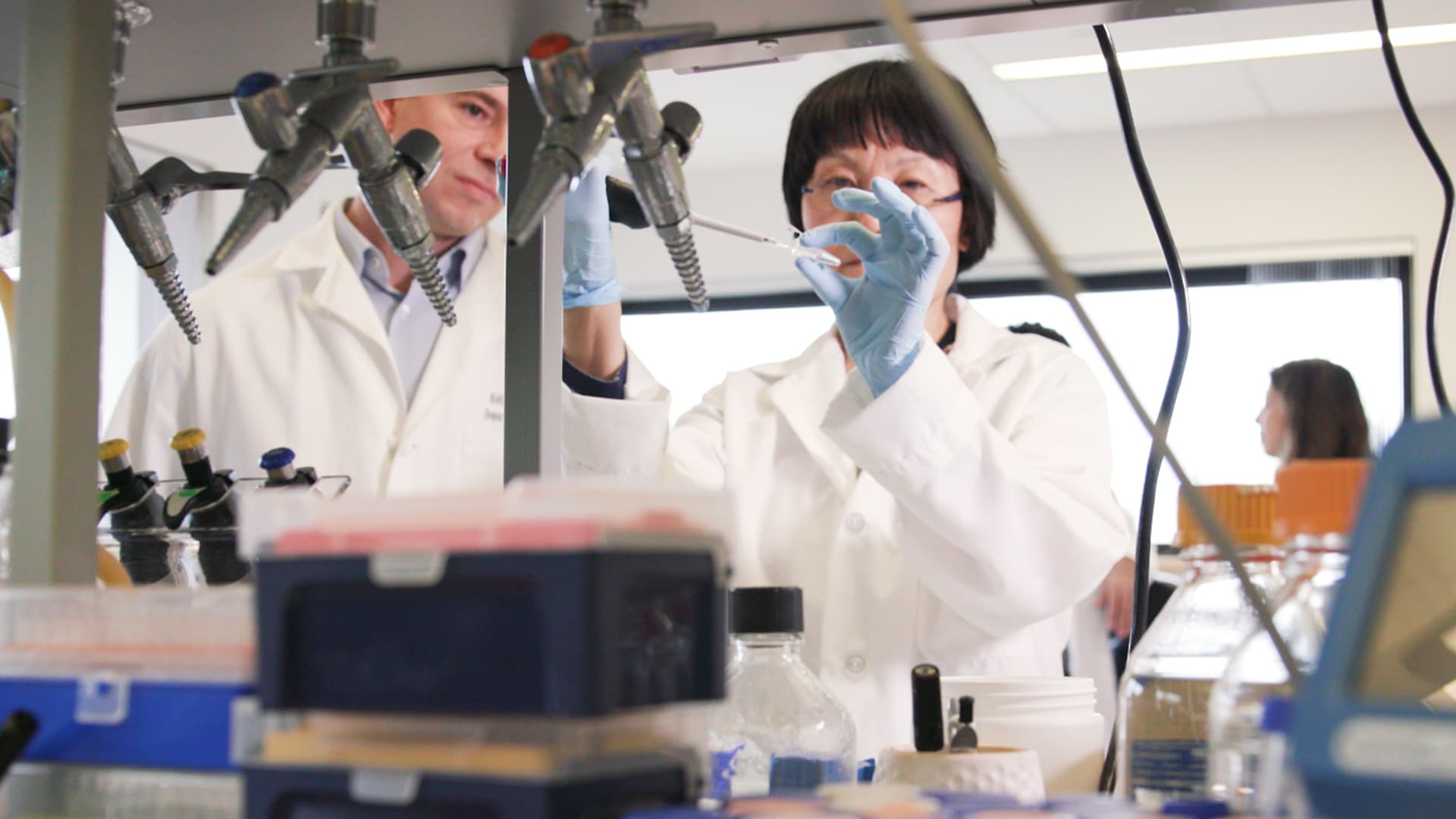Autoimmune Skin Disorders & Disease
Definition
Autoimmune skin disorders and diseases are a group of conditions in which the immune system mistakenly attacks the body's own skin cells, leading to inflammation, damage, and various skin manifestations. These disorders can range from mild to severe and may affect different parts of the skin or body.
Related Specialists
Showing 3 of 17
Related Clinical Trials
Related News
Related Departments
Showing 3 of 26
Cutaneous Granulomatous Disorders Program
The Cutaneous Granulomatous Disorders Program brings together dermatologists, dermatopathologists, and researchers with expertise in the evaluation and treatment of granulomatous disorders of the skin. Granulomatous disorders of the skin include the following diagnoses: Sarcoidosis Granuloma annulare Necrobiosis lipoidica Reactive granulomatous dermatitis Interstitial granulomatous dermatitis Interstitial granulomatous drug (medication) reaction Palisaded neutrophilic and granulomatous dermatitis Necrobiotic xanthogranuloma Rubella granulomas Granulomatous dermatitis, not otherwise specified These conditions lead to skin rashes, which can be very problematic and are frequently life-altering. Individuals affected by these disorders may experience frustration due to the lack of Food and Drug Administration (FDA)-approved treatment modalities. Yale’s Cutaneous Granulomatous Disorders Program recognizes this and works individually with each patient to find the treatment approach that is most suited to their particular situation and individual goals. The program also strives to identify and evaluate new therapies for these disorders. The primary goal of the Cutaneous Granulomatous Disorders Program is to provide optimal care for each patient seen in our specialty clinic, where we take an individualized approach to each patient’s diagnosis and their goals, pairing these with the best treatment options. The program also has several active clinical trials; patients who are interested may have the ability to participate, potentially providing access to some of the latest molecular therapies undergoing evaluation for the treatment of these disorders. Patients may also have an opportunity to participate in other research projects designed to better understand the molecular pathogenesis of these diseases and their effect on patient well-being. Our team was assembled with the goal of bringing together leading experts in cutaneous granulomatous disorders. The physicians in the program include internationally recognized leaders in medical education on cutaneous granulomatous disorders, scientists that have deciphered the underlying immunology of these disorders, individuals that have developed consensus diagnostic criteria for necrobiotic xanthogranuloma, and physicians that have led the evaluation of new treatment approaches for patients with sarcoidosis, granuloma annulare, and necrobiosis lipoidica. Our team also includes dedicated pharmacists with specialized training in the practical and safe use of cutting-edge dermatologic medications, including those used to treat cutaneous granulomatous disorders. The pharmacists have vast expertise in effectively coordinating insurance coverage and are another important point of contact for our patients as they navigate coverage of specialty medications. For patients with sarcoidosis involving the skin, our dermatologists will work closely with their other specialists to identify the optimal treatment approach. YaImmunotherapy Adverse Events in Rheumatology Program
The Immunotherapy Adverse Events in Rheumatology Program treats patients who have adverse events—undesirable outcomes not related to underlying disease—due to immunotherapy or who have autoimmune conditions that may cause flare-ups, or a severe onset of symptoms, when receiving immunotherapy. Immunotherapy treatments—such as immune checkpoint inhibitors, CAR T-cell therapy, and cancer vaccines—use the body’s immune system to fight cancer. Approximately 20% to 25% of cancer patients will have rheumatological adverse events after receiving immunotherapy. Adverse events can include joint or muscle pain, joint swelling, muscle stiffness, vasculitis, dry eyes and mouth, and myositis, which can severely impact quality of life and be organ- or life-threatening. Our team seeks to ensure that patients’ immunotherapy treatment is not interrupted due to adverse events or autoimmune issues. The clinic treats patients in a timely manner, allowing them to start or resume immunotherapy as soon as possible to successfully treat their cancer. At the same time, adverse events are effectively treated to preserve the function of inflamed organs. We collaborate with oncologists to ensure that the treatment of these adverse events does not lessen the efficacy of the immunotherapy treatment. Strong communication and personalized patient management with referring physicians is one of the hallmarks of the program. The Yale Immunotherapy Adverse Events in Rheumatology Program has an outstanding research program that aims to understand the mechanisms of autoimmune disorders secondary to immune-based cancer therapy. We analyze human biospecimens obtained from eligible subjects from our center to identify molecular, transcriptomic, and cellular characteristics using cutting-edge genomic and immunologic technologies. The findings from humans are validated or further explored using various animal models in the laboratory of Sang Taek Kim, MD, PhD, director of the program. As the use of immunotherapy grows to address more types of cancer—and adverse events increase accordingly—Dr. Kim and his team will use data from the clinic and the laboratory to gain insights that lead to a deeper understanding of the predictive markers for adverse events, as well as the development of optimal treatment strategies.Rheumatology
We offer coordinated, multidisciplinary clinical care for people with rheumatoid and other types of inflammatory arthritis, as well as osteoarthritis and a variety of autoimmune diseases, including lupus, scleroderma, myositis, and vasculitis. Our physicians are experts at diagnosing and treating more than 200 types of rheumatologic disorders, some of which are difficult to pinpoint. Rheumatic disorders affect the joints, muscles, and bones and often include autoimmune diseases that disrupt the body’s immune system by causing inflammation and breaking down connective tissue and related body structures. We work closely with other specialists at Yale including pulmonologists, nephrologists, gastroenterologists, cardiologists, allergists, neurologists, dermatologists, surgeons, and orthopaedists to care for complex rheumatic and autoimmune diseases. Specialized care is offered in the following areas: Antiphospholipid antibody syndrome Rheumatoid arthritis and other types of inflammatory arthritis Scleroderma and myositis Systemic lupus erythematosus Transition program for young adults Vasculitis State-of-the-art infusion sites at Yale New Haven Hospital and in the Yale New Haven Health Interventional Immunology Center in North Haven Full array of imaging and laboratory services Nationally recognized clinical research programs that are integrated with clinical care to offer the most advanced treatments to patients with arthritis and autoimmune diseases





